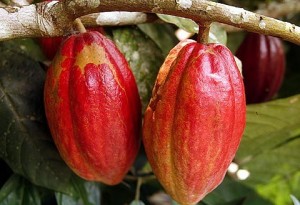Ghana government urged to arrest declining gains of agriculture
 The Minority in Parliament has insisted that government should pay critical attention to the country’s declining agricultural fortunes rather than concentrating on the fledgling oil and gas sector.
The Minority in Parliament has insisted that government should pay critical attention to the country’s declining agricultural fortunes rather than concentrating on the fledgling oil and gas sector.
The side said the rate at which agricultural production is dwindling, coupled with inappropriate and contradictory policies being implemented by government, Ghana is heading the direction of food insecurity and increased poverty.
Addressing farmers in Goaso in the Brong Ahafo Region, Dr Owusu-Afriyie Akoto, the Minority’s spokesman on Food and Agriculture, said government’s fixation on the oil and gas industry at the detriment of the agricultural sector is diminishing Ghana’s economic fortunes.
He said: “Government is paying lip service to agriculture by implementing feeble, inappropriate and contradictory policies that have plagued the performance of the sector.”
Dr Afriyie Akoto contended that since Ghana’s agriculture growth is sluggish “then it means industry, especially the agro- industry cannot grow.”
“The combined effect of this is that employment cannot be generated. Farmers make up about 60 per cent of the country’s populace. If agriculture is not growing, then it means the poverty of the people will not be alleviated,” he said.
Dr Akoto said growth in the sector declined from 7.4 per cent in 2008 to 7.2 per cent in 2009, slowing down to 5.2 per cent in 2010 and hitting a bottom of 0.8 per cent in 2011.
He said the sector registered a 2.3 percentage growth in 2012, recovering partially to 5.2 per cent in 2013 and 5.3 per cent in 2014, and attributed the growth in those two years to the unprecedented growth in forestry and logging activities.
The Minority Spokesperson said the crop sub-sector which engaged most of the 4.5 million farmers in the country recorded growth of only 3.6 per cent in 2014.
Dr Akoto said the 2015 Budget Statement forecast a 5.8 per cent growth in agricultural sector, which targeted growth, was overstated because there was a sharp decline in cocoa production in the 2014/2015 cocoa season, coupled with the rising retail price of fertilizers and other farm inputs.
He envisaged that the country’s cocoa production in the coming years would decline substantially and that government ought to take urgent steps to rein in any situation that would affect the sector negatively.
Anticipating a sharp plunge in export volumes of cocoa from the current 900,000 metric tons to below 500,000 metric tons, Dr Akoto said government should immediately revert to those interventions that the former government implemented which boosted production and export quantities in the cocoa sub-sector.
He noted that after Ghana recorded one million metric tons in the 2011 crop season, there had been a consistent decline in output to figures below 900,000 metric tons in three consecutive seasons.
“At less than 700,000 metric tons, production in the current 2014/2015 crop season is one of the lowest in the past decade. This steady and consistent decline in cocoa production since 2010/2011 is a reflection of both misguided policies and poor implementation of projects pursued by the NDC administration,” he observed.
Dr Akoto said government needs to immediately address the unreliable supply of inputs to farmers, as well as ensure that newer brands of chemicals inputs undergo adequate trials by designated institutions before release to farmers, and depoliticise the mass spraying and fertilizer distribution and an increase in producer prices to farmers.
He urged government to pay cocoa farmers for their produce on time because Parliament had approved loans for that, adding that there is the need to also make good on the annual production bonuses to farmers, streamline the input subsidisation and distribution system to forestall the smuggling of cocoa into neighboring countries, to enable growth in the cocoa sub-sector.
He also asked government to fulfill promises made to cocoa farmers to provide them with incentives like housing, a pension scheme, and feeder roads to cocoa growing communities, adding that the issue of mass destruction of cocoa trees by illegal and small scale miners in major cocoa growing areas should be addressed urgently.
Source: GNA
